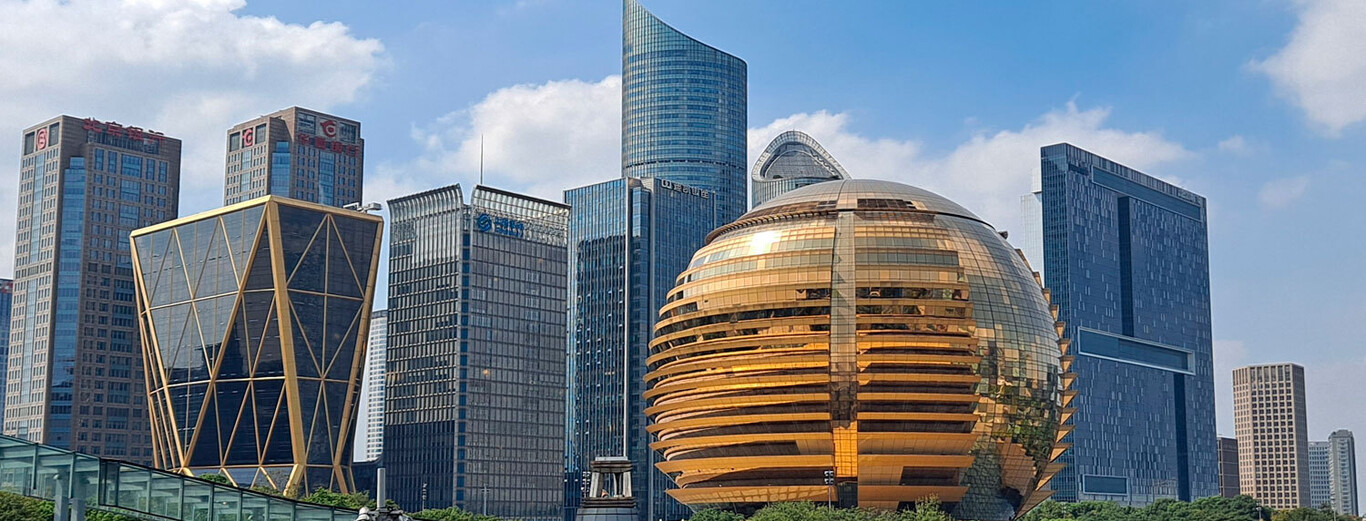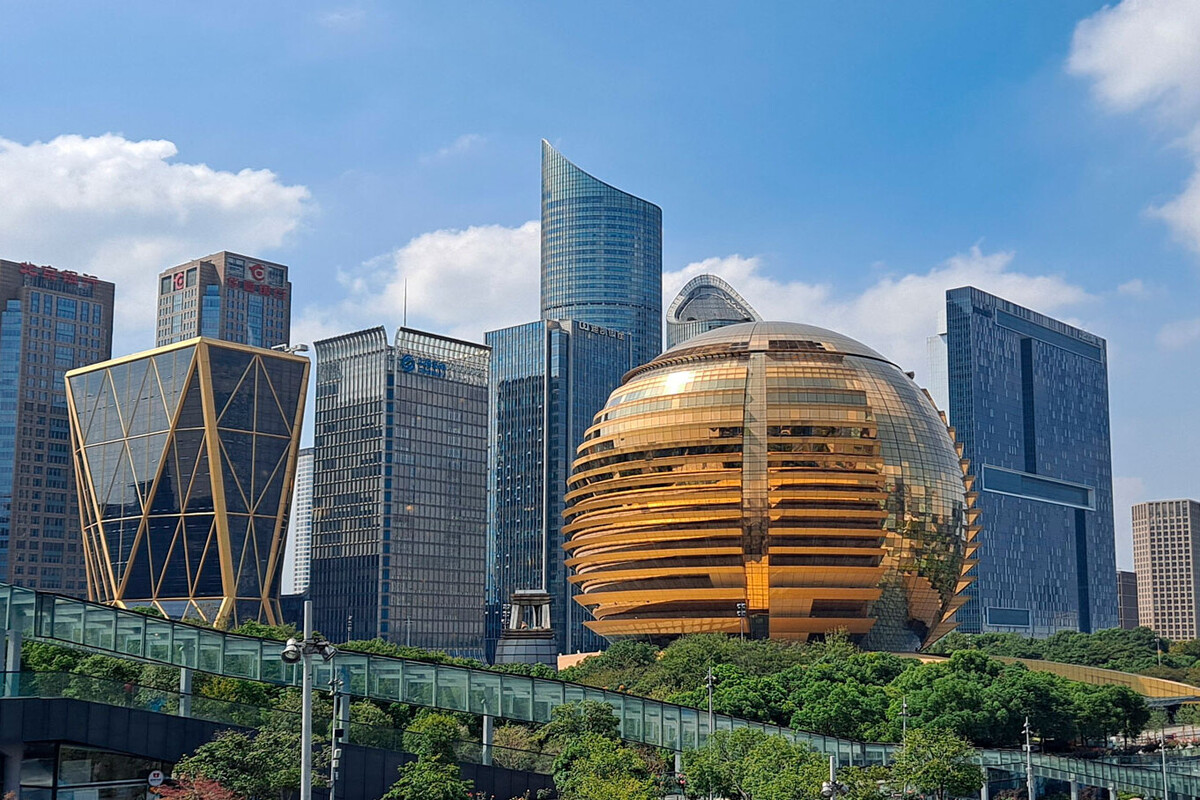Hangzhou Vs Silicon Valley: The Ultimate Tech Showdown You Can’t Ignore
Hello everyone. Let’s talk about Hangzhou – the city the PR machine now desperately wants you to believe is the “Silicon Valley of China.” Because apparently every up-and-coming tech region on the planet must be “the Silicon Valley of [Insert Location Here]” or it just doesn’t count. It’s like a terrible meme that refuses to die, much like loot boxes or “games as a service.”
Alibaba’s Origin Story and the Ecosystem Hype Train
So, Jack Ma decides to set up camp in his hometown and founds Alibaba – a decision that has since been mythologized to almost divine proportions in Chinese business folklore. Don’t get me wrong, Alibaba reshaped e-commerce in China, but the way this tale is told makes it sound like the spiritual equivalent of Moses parting the Red Sea, except instead of tablets, we got next-day delivery and an online spamfest of borderline counterfeit goods.
Sure, Alibaba Cloud has become the technological clay from which AI startups in the city mold their products, but let’s be brutally honest – the real magic here isn’t some utopian innovation zone, it’s a network effect with a side order of rabid investor enthusiasm. Picture it like an MMO economy: one big guild hogging the best loot drops, drawing smaller guilds to the same farming spots.
The Six Little Dragons: Not the Avengers
- DeepSeek – Wowed the AI world in 2024 by proving Big Tech’s cost structures were bloated. Think of it like solo-queueing into a ranked match and trouncing a full pro team. Impressive, but the giant corps aren’t exactly rage-quitting yet.
- Unitree – China’s top robotics brand, with approaches as aggressive as Xiaomi’s smartphone blitzkrieg. Their bots are capable, but we all know mass-market success sometimes comes at the cost of innovation depth.
- Game Science – The first Chinese studio to hit big with a full AAA game worldwide. Respectable achievement, though let’s see if they survive player-base attrition and patch drama – because if the gaming industry has taught us anything, it’s that launches are just the opening cutscene.
- Deep Robotics – Quadruped robots everywhere, and they just dropped another shiny mechanical puppy in 2024. Now if only they’d promise not to outfit them with facial recognition and law enforcement contracts next year…
- BrainCo – From Boston to Hangzhou, specializing in neurotech and the only mass-produced brain-computer interface. Sounds cool, but history tells me that strapping gadgets to brains usually ends up in lawsuits or dystopian disaster movies.
- Manicore Technology – Makers of Kujiale and SpatialVerse. Their latest trick? Generating 3D worlds from video. Translation: the kind of tech that’s either going to revolutionize design or let kids turn TikTok dances into entire living rooms.
Zhejiang University: The Stanford of the East?
Yes, apparently. And much like its American counterpart, it churns out brilliant minds who will either lead revolutionary startups or join megacorps pumping out feature-bloated products you didn’t ask for. Producing 102 AI executives is no small feat; it’s like a game dev studio cranking out expansion packs at record speed – sometimes they’re great, sometimes they’re broken at launch.
Government Buffs and Power-Ups
Hangzhou’s government offers loans up to 500,000 yuan to starry-eyed entrepreneurs, covering up to 80% of losses if the startup tanks. Basically, it’s the real-world equivalent of a game giving you a free epic-tier gear set just for showing up to the tutorial. It’s attractive – much like Game Science’s rent-free first three years – but it also smells suspiciously like stat-padding the city’s scoreboard.
Streamlined Bureaucracy: The Speedrun Category
In a plot twist rarely seen in government-run ventures, Hangzhou figured out how to get people set up in “one visit” to the administration. That’s not just impressive – it’s worthy of a Guinness record for bureaucratic speedrunning. Not that the rest of the world will adopt it quickly… too many side quests, not enough XP reward.
Economic Impact or Just a Shiny Scoreboard?
The city’s tech industry now pulls in about 630 billion yuan – a third of its GDP. That’s huge, undeniably. But before we all start slow-clapping, let’s remember that high numbers often mask fragility. The bigger your base in RTS games, the more attractive a target you become.
Conclusion: Ready Player Hangzhou?
Hangzhou’s rise is legitimately impressive: a blend of strategic talent cultivation, investor-friendly climate, and corporate big hitters acting as gravitational pulls. But let’s keep the champagne chilled – the challenges of sustainability, competition, and ethical responsibility lurk around the corner like mini-bosses waiting for unprepared players.
Overall impression? Good – for now. But the second the ecosystem stops levelling up, it risks sliding into the uncanny valley of overhyped innovation hubs.
And that, ladies and gentlemen, is entirely my opinion.



Hay una ciudad en China que se mide cara a cara con Silicon Valley: bienvenidos a Hangzhou, la casa de los ‘Six Little Dragons’, https://www.xataka.com/robotica-e-ia/hay-ciudad-china-que-se-mide-cara-a-cara-silicon-valley-bienvenidos-a-hangzhou-casa-six-little-dragons



